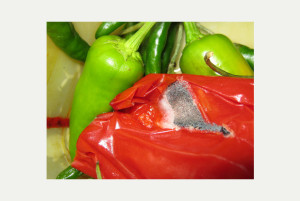Chances are you’ve heard of mapping genes to diagnose rare diseases, predict your risk of cancer and tell your ancestry. But to uncover food poisonings?
The nation’s disease detectives are beginning a program to try to outsmart outbreaks by routinely decoding the DNA of potentially deadly bacteria and viruses.
 The initial target is Listeria, the third-leading cause of death from food poisoning and bacteria that are especially dangerous to pregnant women. Already, the government credits the technology with helping to solve a listeria outbreak that killed one person in California and sickened seven others in Maryland.
The initial target is Listeria, the third-leading cause of death from food poisoning and bacteria that are especially dangerous to pregnant women. Already, the government credits the technology with helping to solve a listeria outbreak that killed one person in California and sickened seven others in Maryland.
“This really is a new way to find and fight infections,” said Dr. Tom Frieden, director of the Centers for Disease Control and Prevention.
With genome sequencing becoming faster and cheaper, the CDC is armed with $30 million from Congress to broaden its use with a program called advanced molecular detection. The hope is to solve outbreaks faster, foodborne and other types, and maybe prevent infections, too, by better understanding how they spread.
“Frankly, in public health, we have some catching up to do,” said the CDC’s Dr. Christopher Braden, who is helping to lead the work.
As a first step, federal and state officials are rapidly decoding the DNA of all the Listeria infections diagnosed in the U.S. this year, along with samples found in tainted foods or factories.
It’s the first time the technology has been used for routine disease surveillance, looking for people with matching strains who may have gotten sick from the same source.
The Listeria project began as officials were investigating some sick Maryland newborns and their mothers. Genome sequencing showed  those cases were linked to a California death, helping investigators determine which foods to focus on, said Dr. Robert Tauxe, CDC’s leading foodborne disease sleuth.
those cases were linked to a California death, helping investigators determine which foods to focus on, said Dr. Robert Tauxe, CDC’s leading foodborne disease sleuth.
Standard tests prompted recall of the FDA’s suspect, a brand of Hispanic-style cheese. Last month, the government announced that sequencing also confirmed listeria from the recalled cheese matched germs from the patients.
“We expect to be able to match more and more of what we find in people to what we find in food,” as the project grows, Tauxe said.
 ceilings. It also has developed new written policies and procedures, and provided staff training on proper washing of hands, food preparation, use of gloves and reporting of illnesses, Wieghmink said.
ceilings. It also has developed new written policies and procedures, and provided staff training on proper washing of hands, food preparation, use of gloves and reporting of illnesses, Wieghmink said.









